Michelangeli Plays Chopin (1962)
Género : Música
Tiempo de ejecución : 1H 46M
Sinopsis
The legendary Italian pianist Arturo Benedetti Michelangeli (1920 - 1995), playing at the height of his powers, performs Chopin's Sonata in B flat minor and other music by one of the instrument's most brilliant and idiomatic writers, in the famously rare 1962 RAI television recording, newly restored and remastered for this release. Michelangeli's fine control and perfect clarity - always present in his playing - have positioned him among the most outstanding recording artists of any generation. ""His fingers can no more hit a wrong note or smudge a passage than a bullet can be veered off course once it has been fired...""
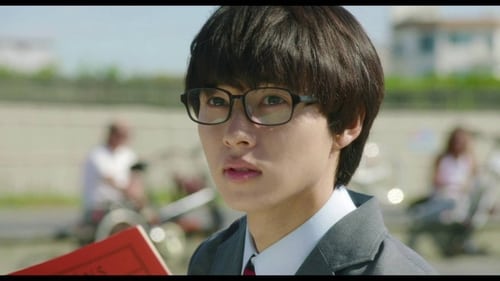
Un talentoso pianista, ganador de numerosos premios, no es capaz de volver a tocar desde que murió su estricta madre. Una violinista de espíritu libre le ayudará a recobrar la pasión por la música.

El concierto de la noche de verano de la Filarmónica de Viena es el concierto anual clásico al aire libre más grande del mundo que se desarrolla en el mágico parque barroco del palacio de Schönbrunn en Viena. El concierto tendrá lugar el 31 de mayo de 2018 y su tema para este año es 'An Italian Night'. El concierto se transmite por televisión y radio en más de 60 países, y por lo tanto llega a una audiencia de millones. El repertorio de la noche es una atractiva combinación de obras extremadamente populares para orquesta, como William Tell Overture, la Marcha de la ópera Aida y el Intermezzo de Cavalleria Rusticana, así como famosas arias soprano como Vissi d'arte, vissi d'amore de Opera Tosca. ¡Valery Gergiev vuelve a dirigir el Concierto de la noche de verano y se une a la estrella Soprano Anna Netrebko en lo que promete ser uno de los conciertos más populares de este año!

The 2019 New Year's Concert will be conducted for the first time by Christian Thielemann. A native of Berlin, Thielemann has been a regular and welcome guest of the Vienna Philharmonic since 2000, with the result that his first New Year s Concert may be seen as setting an example and providing an appropriate tribute to his previous work with the orchestra. According to the orchestra s chairman, Daniel Froschauer, orchestra and musicians trust each other completely: "The profound musical understanding and trust that have existed from the outset and that have always functioned perfectly have subsequently borne remarkable fruit in the symphonic repertory as well."

The evocative music of Claude Debussy has been described as the foundation of modern music. But how did the composer come to develop his unique style? On this video, maestro Francois-Xavier Roth and the London Symphony Orchestra present the UK premiere of a previously lost work by the young Debussy, alongside some of his earliest inspirations. Debussy's newly discovered Premiére Suite gives a rare insight into the mind of a young composer on the cusp of innovation. It's a work filled with Romantic and Eastern influences and glimpses of the unexpected harmonies that came to define Debussy's work. Paired alongside the composer's role models - from Wagner's powerful intertwining motifs, the abundant Spanish influences in Lalo's rarely-heard Cello Concerto performed here by Edgar Moreau, and Massenet's majestic Le Cid - Francois-Xavier Roth gives a fresh perspective on the much-loved composer.

Rodrigo / Chabrier / Rachmaninov / Cañizares / Berliner Philharmoniker / Sir Simon Rattle
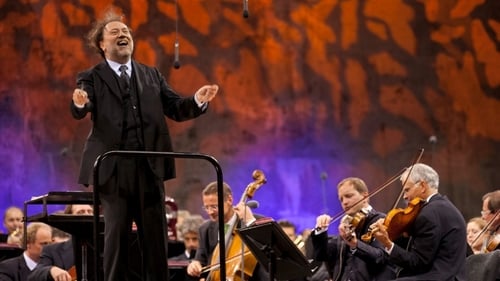
The Waldbühne in Berlin, one of the most appealing outdoor amphitheatres on the European continent, is the home of the Berliner Philharmoniker’s summer concerts. With audiences of more than 20,000, these are some of the most popular classical music concerts in the world. Riccardo Chailly is famous for having one of the broadest and most eclectic repertoires. Here, under his baton, the orchestra presents perennial favourites by Shostakovich, Rota and Respighi. Live recording from the Waldbühne, Berlin, 23 August 2011, directed by Kasten Henning, produced by Jan Bremme. TV Producer: Dorothea Diekmann, RBB. Repertoire
Dmitry Shostakovich: Suite No. 2 for Jazz Orchestra (Suite for Variety Orchestra), Lady Macbeth of Mtsensk Suite – Allegretto; Nino Rota: ‘La Strada’ Ballet Suite; Ottorino Respighi: Fountains of Rome • Pines of Rome • Danza gueresca ‘Belkis’; Paul Lincke: Berliner Luft

Surely Bach’s French Suites, which he composed during his years at Cöthen (1717–1723), are among the finest inducements to practise that any teacher has ever made to a pupil. In this case Bach wrote them for his young wife, Anna Magdalena. The over-riding impression left by these suites is one of endearing tunefulness. Clavier-Übung II is a later collection of didactic keyboard pieces. It comprises two greatly contrasted works: the Italian Concerto and the Overture in the French Style. These performances admirably demonstrate the thoughtful and persuasive approach that András Schiff adopts when performing Bach. Recorded live at the Bachfest 2010, Protestant Reformed Church of Leipzig, 11 June 2010 Repertoire
J.S. Bach: French Suites Nos. 1–6, Overture in the French Style in B minor, Italian Concerto in F major, BWV 971

The Waldbühne in Berlin, one of the most appealing outdoor amphitheatres on the European continent, is the home of the Berliner Philharmoniker’s summer concerts. With over 20.000 in attendance, they are some of the most popular classical music concerts in the world. In 2015 the Berliner Philharmoniker surrounded themselves with plenty of celebrities, including not only conductor Sir Simon Rattle, but also many figures from film history: Indiana Jones, Robin Hood, Ben Hur and many more. They were all brought to life musically when the orchestra performed some of Hollywood’s most famous film music. With film music from Star Wars, Indiana Jones, E.T. composed by John Williams. Live from the Waldbühne Berlin, 2015.

“Clarity was one thing that made this performance a marvel. Another was the flexibility of Barenboim’s speeds…. The flexibility of Barenboim’s tempi meant that Bruckner’s charm – an often overlooked aspect of his genius – shone through, especially in the genial Trio.” (The Telegraph) Bruckner’s 8th is the last symphony completed by the Austrian composer. Many of his contemporaries regarded the symphony as “the pinnacle of 19th century music”. Even today, this monumental work fascinates listeners with its virtuoso orchestral technique, its immensity of sound, and its inexhaustible richness of detail. Symphony No. 8 in C minor (second version 1887-90, Robert Haas Edition) Daniel Barenboim, Conductor Staatskapelle Berlin Recorded live at the Philharmonie Berlin, 26 June 2010

In Anton Bruckner’s 7th Symphony, the listener encounters a music characterized by great spaciousness and profound solemnity, a music which speaks of grief and lamentation, but also of their transcendence. With its monumental architecture and intensity of sound, the symphony has moved listeners ever since its triumphal premiere in 1884. The Guardian calls Daniel Barenboim’s London interpretation “Tremendous … Barenboim and the Staatskapelle seem to have this work in their systems, and the overall impression was of music unfolding organically at its own pace rather than of a work being self-consciously interpreted or led.” Anton Bruckner Symphony No. 7 in E major (original version) Daniel Barenboim, conductor Staatskapelle Berlin Recorded live at the Philharmonie Berlin, 25 June 2010

The Berliner Philharmoniker’s European Concert, held each year on 1 May, is invariably an international highlight. Performing in 2008 in Moscow's renowned Tchaikovsky Conservatory, the orchestra under Sir Simon Rattle presented outstanding performances of works by Beethoven, Stravinsky and Bruch, whose Violin Concerto featured one of today’s most fascinating artists, the Russian violinist Vadim Repin. Repertoire
Stravinsky: Symphony in Three Movements; Bruch: Concerto for Violin No.1, op.26; Beethoven: Symphony No.7 in A major, op. 92 Vadim Repin Sir Simon Rattle
Berliner Philharmoniker
Sir Simon Rattle




Valery Gergiev is widely recognised as the greatest modern interpreter of Tchaikovsky’s music and the Mariinsky holds a peerless reputation in the repertoire. Together they deliver definitive interpretations of Tchaikovsky’s most popular symphonies. These acclaimed performances were filmed at Salle Pleyel in Paris during January 2010, directed by Andy Sommer. The themes of fate and death pervade Tchaikovsky’s final symphonies. The composition of the Fourth Symphony coincided with the breakdown of Tchaikovsky’s marriage and a failed suicide attempt, yet he considered it to be his greatest. In contrast he believed his Fifth to be flawed and uninviting, yet today this heartfelt work is widely regarded as one of his finest. The subject of fate is further instilled in the Sixth Symphony, premiered shortly before Tchaikovsky’s death. It was posthumously entitled ‘Pathétique’ by his brother and is a deeply melancholic work, full of dynamic extremes and an inherent sense of finality.

Repertoire
Modest Mussorgsky: Night on Bald Mountain; Antonín Dvořák: Song to the Moon from “Rusalka”, Op. 114; Aram Chatschaturjan: Adagio from “Spartacus”; Richard Strauss: Final Scene from “Capriccio”, Op. 85; Richard Wagner: Overture to “Rienzi, der Letzte der Tribunen”; E. W. Korngold: Mariettas Lied from “Die tote Stadt”; Richard Strauss: Zueignung, Op. 10 No. 1; Sir Edward Elgar: Salut d’amour; Giacomo Puccini: Donde lieta uscì from “La bohème”; Tu che di gel sei cinta from “Turandot”; Ruggero Leoncavallo: Musette svaria sulla bocca viva from “La bohème”; Mimì Pinson, la biondinetta from “La bohème”; Piotr Tchaikovsky: “Romeo and Juliet” (Fantasy Overture)
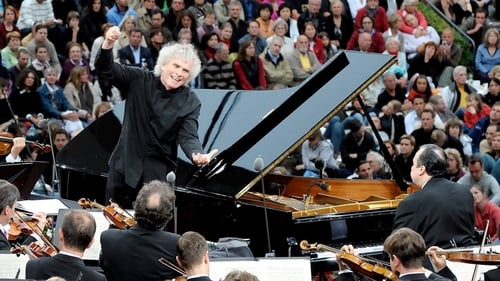
Every year, the Berliner Philharmoniker hold a kind of classical-music fête with a bright, cheerful concert to end the season. In 2009 about 22,000 people had come together at the Berlin Waldbühne to enjoy the traditional summer picnic concert. The theme of the evening was “Russian rhythms”, and star conductor Sir Simon Rattle, the Berliner Philharmoniker and Yefim Bronfman, one of the most famous pianists in the world today, presented a superb selection of Russian music. Repertoire Tchaikovsky: The Nutcracker, op. 71, Overture, The Christmas Tree, March, Pas de deux (Intrada) Rachmaninoff: Piano Concerto No.3 in D minor, op. 30 Stravinsky: Le Sacre du printemps Lincke: Berliner Luft
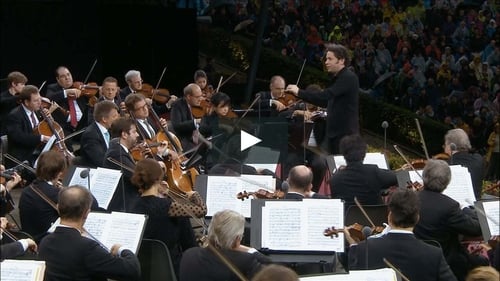
Vista generalPara su concierto anual de fin de temporada, la Filarmónica de Berlín lleva a la audiencia a un viaje mágico y de ensueño a través del río Rin con la amada tercera sinfonía renana de Schumann. Piezas de Der Ring des Nibelungen de Wagner bajo la batuta del dinámico director Gustavo Dudamel completan esta noche. Repertorio
Robert Schumann: Sinfonía n. ° 3 en mi bemol mayor
Richard Wagner: Einzug der Götter en Walhall (de Das Rheingold), Siegfrieds Rheinfahrt (de Götterdämmerung), Marcha fúnebre (de Götterdämmerung), Waldweben (de Siegfried), Walkürenritt (de Die Walküre), Isoldes Liebestod (de Tristan) Preludio 3. Acto (de Lohengrin) Filarmónica de Berlín
Gustavo Dudamel

There is hardly a better way to approach Ludwig van Beethoven than through his piano concertos. Beethoven’s own instrument was the piano, and in his improvisations – which made him the darling of the Viennese salons – he merged virtuosity and unbridled expression. The piano concertos give a clear idea of these performances. At the same time, they are prime examples of Beethoven’s ability to create large orchestral works with seemingly endless arcs of tension. The complete recording of all five works with Mitsuko Uchida and Sir Simon Rattle was one of the most spectacular projects of the Berliner Philharmoniker during the Rattle era – and at the same time the highlight of the collaboration between the orchestra and the pianist, which began in 1984.
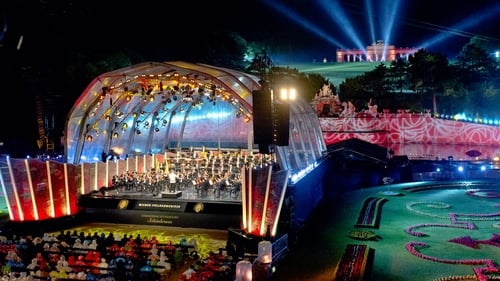
La reconocida orquesta presenta el concierto anual clásico al aire libre más grande del mundo en vivo desde su ciudad natal, Viena, Austria, el jueves 29 de mayo de 2014. El Concierto de la noche de verano con la Filarmónica de Viena es un evento anual al aire libre que tiene lugar en el entorno mágico de El Schönbrunn Palace Park en Viena con el palacio como un magnífico telón de fondo. Todos están invitados a venir a esta ocasión única con entrada gratuita. Cada año, hasta 100,000 personas pueden recibir la invitación o disfrutar de la radio y la televisión en más de 60 países.












